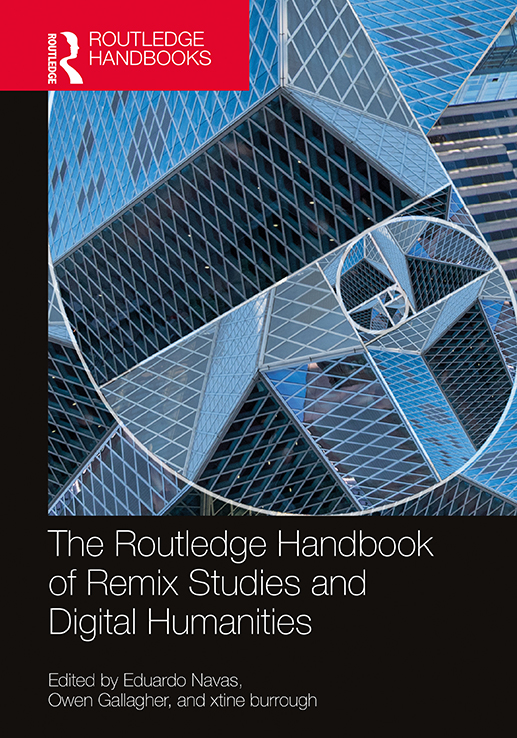This section is concerned with the role of remix as a techno-political tool of media activism. It explores the extent to which remix may be considered effective in the service of various social and political causes. Remix is a contemporary practice enabled by the convergence of digital networking technologies, the affordability of digital media production and distribution tools, and the proliferation of access to ever-expanding online archives of spreadable digital media content. The convergence of such factors has resulted in an unprecedented democratization of the tools and techniques previously available to an exclusive minority of well-funded producers. Contributions explore the shifting balance of power in the contemporary media landscape and consider the implications of the remixer’s increasing potential to reach audiences of millions with political messages.
22) “A Capital Remix”
Rachel O’Dwyer
Remix is thought to cultivate a critical and democratic culture driven by users as opposed to corporations. So too, as an activity that thrives on social production and the free exchange of information, knowledge and culture, remix disrupts an economy that extracts value from the enclosure of intellectual and cultural products, threatening the monopoly of corporations who have succeeded in privatizing these goods. However, recent transformations to the cultural industries mean that the nonmarket potential of remix is now contested. Forms of attention, spontaneous creativity and bottom-up circulation are among the main sources of value in the contemporary economy.
Elaborating on these competing perspectives and their situation within a political economy of network culture, this chapter will rethink the practice of remix and the accumulation of value from remix in light of significant transformations to creative work and to the cultural industries. This involves first looking at the ways in which remix is presented as a nonmarket and often anti-commercial practice, before examining the transformations that situate remix at the centre of an economy where cultural content is now a primary driver of wealth.
23) “Remix Practices and Activism: A Semiotic Analysis of Creative Dissent”
Paolo Peverini
In this chapter Peverini focuses on audiovisual remixes, precisely on tactics and strategies planned by activists to involve public opinion with respect to issues like environmental protection or freedom of expression. He hypothesizes that the effectiveness of some of the most radical and innovative creative protests is based on the ability to recognize and manage remixes intended as techno-political tools, even though in the digital media milieu the most original campaigns are rapidly assimilated by unconventional marketing strategies, triggering a process of progressive standardization. Through the analysis of some exemplary campaigns planned by GreenPeace and Wikileaks we try to demonstrate that an emerging trend consists in a gradual stratification of texts used to address the receivers. The aim is to provoke a reaction while at the same time entertaining the audience, remixing in an ironic way various intertextual and interdiscurisive references.
24) “Political Remix Video as a Vernacular Discourse”
While data-driven art is not new, recent developments in technical, artistic and social spheres have coalesced to produce new opportunities for artists and activists to remix data with space and place to form locationally-specific political critiques of great power and flexibility. Through processes of remixing multiple data sources within specific spatial, social and political contexts, it is argued that locative media practices offer critical understandings of space and place. It is proposed that the consideration of these emergent practices as remix offers an effective method for unpacking the complex interrelationships between location, technology and data and their associated artistic and activist practices. This convergence of data and physical space is situated within an artistic tradition of utilizing data as a tool of political and artistic critique, a tradition, it is argued, that underpins and informs current work. Artistic projects, approaches and methods in this contested area are identified which, it is argued, point toward future directions in locative remix.
26) “The Politics of John Lennon’s “Imagine”: Contextualizing the roles of mashups and new media in political protest”
Nadine Wanono
After a brief historical overview of the SI and their political agenda based on détournement, I explore some of the work produced by Jean Rouch as a connecting factor between the SI and the Remix movement to recall some of the different forms taken by the remixer in the visual arts and in music production. I also examine how the détournement, in correlation with computer programming language, affects and influences remix in relation to different political, aesthetic, and technical dimension.
28) “The New Polymath”
Rachel Falconer
In this chapter Falconer reflects on the role of the polymath in the digital age, and questions what it means to claim to be erudite in networked society where the value systems of traditional knowledge production have been skewed by the distributed nature of information. One of the hallmarks of the digital age is the hyper-saturation of informational flow, which is automatically aggregated, siloed and filtered according to the patterns of the “hive mind.” These complex patterns of knowledge dispersion are the conditions under which the cognitive remixer must operate. This seismic shift in knowledge ecologies unfolding before us is spotlighted by the generative agency of the remixer as she activates her political reach in relation to the pathologies of the network. These apparent tensions between passive knowledge production and consumption and the creative and generative agency associated with the concept of remix are explored in this chapter.


